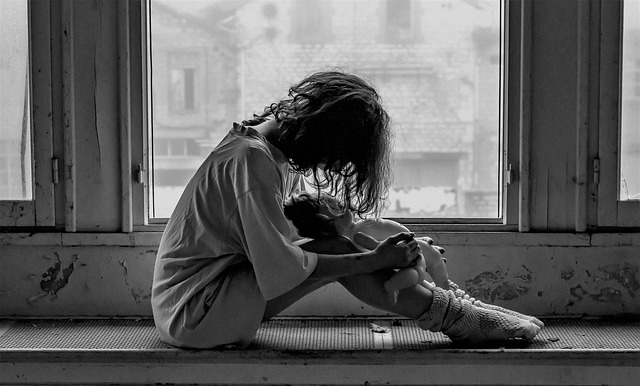A miscarriage is undeniably difficult for expecting moms.
You might have been imagining how your child will sleep in your arms after a feeding session. Or how it feels to brush their little fingers and toes against your own. You try your best to have a healthy pregnancy. Several months of anticipating and preparing for the arrival of your little one already passed.
After a visit to the doctor, you hear the bad news: your baby’s heartbeat is gone.

You can’t seem to understand the gravity of the situation. Miscarriage didn’t sink in yet, until a few days after. Your doctor says you have to go back to have your baby delivered. After all the questions, you still don’t have the right answers.
Luckily, there is still hope for tomorrow. If you are actively seeking ways on how to recover after a miscarriage, here are some tips for most miscarriages to help you achieve just that.
How Miscarriages Occur
Before going deeper into how you can recover after a miscarriage, you should be able to understand why miscarriage comes about in the first place. In so doing, you may be able to identify risk factors of miscarriage and avoid them if ever you decide to get pregnant in the future.
Miscarriages usually occur during the first trimester of pregnancy. However, there are some cases when the miscarriage happens up until the 20th week of pregnancy.
There are various reasons why miscarriages happen, including intense physical activity, obesity, thyroid problems, chromosomal issues, and infections. According to Togas Tulandi, MD, MHCM, “Many factors can lead to miscarriage, and it is difficult to say with certainty what causes a particular miscarriage to occur.” In addition, several risk factors also contribute to a miscarriage, such as:
-
substance abuse
-
heavy alcohol consumption
-
infections in the uterus or cervix
-
advanced age of the mother
-
physical trauma, especially in the belly area
There are also several medications when ingested carry a risk for miscarriage, including ones for rheumatoid arthritis and retinoids. In the event of future pregnancies, be sure to consult your physician before taking any medication to make sure it doesn’t carry any risks for the baby and results in miscarriage.

After Miscarriage
After a miscarriage, you are sure to encounter changes in your body and your psychological make-up. Here are some you should expect after a miscarriage.
Physical Changes
Abdominal cramps follow immediately after a miscarriage, coupled with heavy vaginal bleeding that can last up to several weeks. Have your partner rush to the nearest grocery to stock up on maternity pads or tampons, as they will be helpful for your post miscarriage care. The Tampax Pearl Tampons are one of the most highly recommended tampons to use after miscarriages.
Fatigue, dizziness, and sleepiness also surface after a miscarriage. However, the severity of the physical changes you will encounter after miscarriage depends on how far along you are in your pregnancy.
Emotional Changes
More than the physical changes, you should also keep in check your psychological health to be able to recover well after a miscarriage, especially if you already had repeated miscarriages.
Grief and sadness are some feelings that often follow miscarriage. It is normal to feel for the loss of your child for a month or so after miscarriage. After all, you have cared for your unborn for several months now. Janet Jaffe, PhD from the Center for Reproductive Psychology in San Diego says, “But miscarriage is a traumatic loss, not only of the pregnancy, but of a woman’s sense of self and her hopes and dreams of the future. She has lost her ‘reproductive story,’ and it needs to be grieved.”
However, for some, early pregnancy loss can be too much to bear, leading to depression. This can last from six months up to two years. Keep your family members and support group updated on your emotional progress in order to prevent depression from happening to you. If needed, you may also consult with a psychologist post miscarriage. they can address any negative thoughts you have been harboring and recommend corrective action as well.
Furthermore, pregnancy hormones are still present even after several weeks after your miscarriage. You may continue to suffer from mood swings and occasional food cravings as if you’re still pregnant. The specific kinds of hormones present, however, depend on whether you’re still in your first or second trimester. “Hormone levels decrease over a couple of weeks, therefore emotional ups and downs may be common as your body copes with the cascade of having those pregnancy hormones and then not having them,” says clinical associate professor at NYU Langone Health, Iffath Hoskins, MD.

Recovering from Miscarriage
When To Visit Your Physician
Immediately after your miscarriage, you should be in constant communication with your physician. They might recommend that you undergo some tests to make sure that you are well on your way to recovery. On some occasions, you might have to take additional medication to lessen your bleeding, especially if you are bleeding non-stop for three weeks or more post miscarriage.
A miscarriage can be heartbreaking and life-shattering. Therefore, recovery after a miscarriage takes a two-pronged approach. You should take into consideration both the physical and emotional aspects to fully recover from the ordeal. Physically, you should regularly be in touch with your physician for any tests you need. You should also watch what you eat by sticking to healthier food while resting. Emotionally, you should keep your support group close to you at this trying time. Your loved ones will be your anchor while you’re coping with the loss of your child. In the end, you will be sure that you have all bases covered and you are well on your way to recovery.
Changing Your Diet
After a miscarriage, you have to watch what you eat. You should be able to quickly recover your body’s lost nutrients after bleeding so much during your ordeal. To restore the lost blood from your body, you should take in a lot of iron-rich food. These could be in the form of green leafy vegetables, beans, strawberries, and dark chocolate. Furthermore, in order to rebuild your calcium storage, you must take in more dairy products such as milk and yogurt. Other options include omega-3 fatty acid-rich food like salmon and sardines.
On the other hand, you should avoid eating:
-
pork
-
beef
-
fast food products
-
raw meat
-
seafood
These kinds of food will contribute to the severity of your abdominal cramps, leading to pain and discomfort.
When you have food cravings, it’s also hard to say no to pretzels, candies, and carbonated drinks. However, you should stick to healthier food options to fast track your recovery and lessen the chances of contracting infections.
When Should You Try Again After Miscarriage
While a miscarriage can leave you with lasting physical and psychological scars, chances of success are still high when you’re trying for a rainbow baby.
However, it is highly recommended to delay trying to get pregnant again after at least six months to a year. The key here is to let the body rest and recover from the trauma of pregnancy and miscarriage. At the minimum, you should at least wait for three months before trying to get pregnant again.
This timeframe is just for the physical aspect. You should also check if you are emotionally ready to accommodate another baby in your body. Have yourself tested by a psychologist if you have moved on from the guilt, grief, and, possibly, depression you have suffered after your miscarriage.
Ultimately, the short answer is that it differs from one person to another.

Miscarriage FAQs
What are the symptoms of miscarriage in early pregnancy?
The most obvious sign of miscarriage is either spotting or bleeding. If you experience either of these during pregnancy, it may be a sign of something serious. Miscarriage symptoms also include back pains, cramps, and abdominal pain.
What causes miscarriage?
There is a variety of causes for miscarriages. Some of these symptoms are maternal age, irregular hormones, infection, improper implantation of the egg in the uterine lining, and exposure to hazards.
What happens after a miscarriage?
Women who suffered from miscarriage will normally experience bleeding up to two weeks and cramps. Symptoms brought by pregnancy will soon enough fade after miscarriage. Miscarriage is an unfortunate event that may also cause distress affecting the emotional well-being.
What can cause miscarriage in the first 12 weeks?
Early miscarriage is common and happens to 1 of 5 women. Miscarriage in the first 12 weeks can be caused by chromosomal or placental problems. Chromosomal problems happen during conception when the division of chromosome goes wrong, either repeating or missing a chromosome. Meanwhile, the placental happens when the formation of the placenta, which is vital for the baby’s sustenance, goes wrong.
What is a silent miscarriage?
Silent miscarriage happens when the fetus is not formed or if it died leaving the placenta and embryonic tissues in the uterus. It is a form of miscarriage sometimes called a missed miscarriage.
How does a miscarriage feel?
Miscarriage entails having cramps. The cramps may come off painful and strong for some, while for others it may feel light. Miscarriage also includes vaginal bleeding with huge clots of blood.
What is the most common week to miscarry?
The majority of miscarriages happen in the first trimester or below 12 weeks of pregnancy. During the first few weeks of pregnancy, women tend to miscarry without realizing that they are pregnant.
How long does it take to pass a miscarriage?
The length of passing a miscarriage varies among women. Some women would experience miscarriage symptoms for only a few hours. On the other hand, other women would have to deal with cramps and bleeding for a week or two.
Disclaimer: The information on this site is not intended or implied to be a substitute for professional medical advice, diagnosis or treatment. All content, including text, graphics, images and information, contained on or available through this website is for general information purposes only. Please see a medical professional if you need help with depression, illness, or have any concerns whatsoever. WE DO NOT OFFER MEDICAL ADVICE, COURSE OF TREATMENT, DIAGNOSIS OR ANY OTHER OPINION on your conditions or treatment options. SERVICES OR PRODUCTS THAT YOU OBTAIN THROUGH THIS WEBSITE are for information purposes only and not offered as medical or psychological advice, guidance or treatment.
We also use some affiliate links in this blog to help support continuous production of wholesome parenting content such as this. 🙂 Feel free to use them to show your support.


